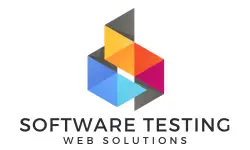Automation Testing with Selenium and Python
Course Overview:
This comprehensive online course will empower you with the skills and knowledge to automate web application testing using the powerful combination of Selenium WebDriver and Python. You will learn how to write efficient, maintainable, and scalable test scripts to interact with web elements, validate application behavior, and ensure software quality. The course emphasizes a hands-on approach, guiding you from Python basics to advanced Selenium automation techniques, providing you with the confidence to implement effective testing solutions.
Course Objectives:
Upon completing this course, you will be able to:
- Understand the fundamental principles of automation testing and its benefits
- Master Selenium WebDriver to automate interactions with web browsers
- Write Python scripts to locate web elements, perform actions, and validate results
- Implement various test scenarios, including functional, regression, and cross-browser testing
- Utilize testing frameworks and design patterns for better test organization and maintainability
- Integrate automation tests with CI/CD pipelines for continuous testing
Prerequisites:
- Basic understanding of Python programming: variables, data types, control flow, functions
- Familiarity with software testing concepts is a plus, but not mandatory
Course Curriculum:
Module 1: Python Essentials for Automation
- Introduction to Python: data types, variables, operators, control flow
- Working with lists, dictionaries, and other data structures
- Functions and modules for code organization and reusability
- Exception handling and debugging techniques
Module 2: Setting the Stage with Selenium
- Introduction to Selenium WebDriver and its role in automation
- Setting up Selenium with Python bindings
- Interacting with web elements: locating, clicking, sending keys
- Handling different types of web elements: input fields, buttons, dropdowns
Module 3: Mastering Selenium Interactions
- Navigating through web pages and handling multiple windows
- Implicit and explicit waits for managing dynamic web elements
- Handling AJAX calls and asynchronous behavior
- Working with iframes, alerts, and pop-up windows
Module 4: Crafting Test Scripts
- Writing Python scripts to automate test scenarios
- Validating expected outcomes with assertions
- Performing actions like drag and drop, file uploads, and keyboard interactions
- Organizing and structuring test scripts for maintainability
Module 5: Testing Frameworks and Best Practices
- Introduction to popular testing frameworks: Pytest, Unittest
- Organizing test cases and suites
- Applying the Page Object Model (POM) design pattern
- Implementing data-driven testing for enhanced coverage
Module 6: Continuous Testing with CI/CD
- Overview of CI/CD pipelines and their importance
- Integrating Selenium tests with CI/CD tools like Jenkins, Travis CI
- Generating test reports and analyzing results
Training Features:
- Hands-on Projects: Apply your learning to real-world automation projects.
- Quizzes and Assessments: Reinforce your understanding and track your progress.
- Downloadable Resources: Access code examples, presentations, and additional learning materials.
- Certification: Upon successful course completion, receive a certificate acknowledging your achievement.
- Instructor Support: Get guidance and answers to your questions from experienced instructors.
